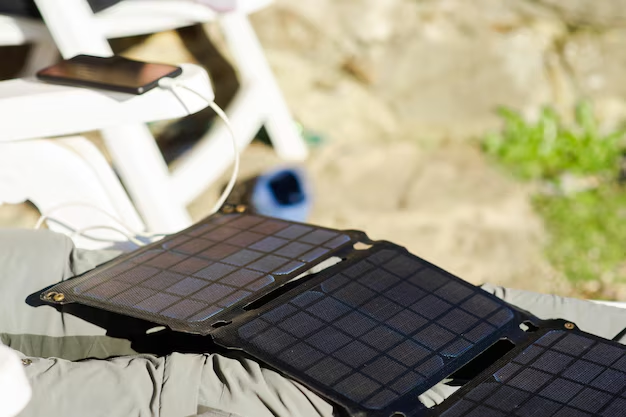How Long Can a Solar Generator Keep Your Refrigerator Running?
In today's rapidly evolving technological landscape, more homeowners are exploring sustainable energy solutions for everyday needs. A pertinent question that arises when considering switching to solar power is, "How long can a solar generator power my refrigerator?" This query is not only relevant for those looking into sustainable living but also for individuals preparing for emergency situations where maintaining electricity isn't a given. Let's dive deep into what influences this, and how you can make informed decisions for your food storage needs.
🌞 Understanding Solar Generators: The Basics
What is a Solar Generator? A solar generator is a compact system consisting of solar panels, a solar battery, and an inverter. Solar panels collect energy from the sun and store it in the generator's battery. The inverter converts this stored energy into usable AC power for running home appliances.
Key Components:
- Solar Panels: Capture and convert sunlight into electricity.
- Battery Storage: Stores the electricity for later use.
- Inverter: Converts stored DC power into AC power to run appliances.
Advantages:
- Sustainable and renewable power source.
- Quiet operation compared to fuel-based generators.
- Low maintenance requirements.
🏠 The Power Demands of a Refrigerator
One of the largest power consumers in a household is typically the refrigerator. Understanding its energy needs is pivotal in determining how long a solar generator can keep it running.
Typical Energy Consumption
- Average Wattage: Most modern refrigerators consume between 100 to 800 watts depending on their size and model.
- Cycle Operation: Refrigerators don’t run continuously. They operate in cycles, affecting their average energy consumption over time.
Factors Affecting Usage
- Size of the Refrigerator: Larger refrigerators naturally consume more energy.
- Temperature Settings: Lower temperature settings require more energy.
- Insulation Quality: Better insulation leads to less energy usage, as the refrigerator retains cold air more efficiently.
🔋 Sizing Your Solar Generator and Battery
To estimate how long a solar generator can power a refrigerator, you must balance the fridge's energy demands with the solar generator's capacity.
Calculating Your Needs
Determine the Refrigerator's Daily Energy Use:
- Assuming an average of 800 watts for up to 8 hours per day: ( 800 ext{ watts} imes 8 ext{ hours} = 6400 ext{ watt-hours} ).
Assess Your Solar Generator's Battery Capacity:
- Battery Size Matters: The battery must sustain the refrigerator's average usage for the required duration. A 1000-watt-hour battery will last around 1.25 days for a similar fridge.
Charge Rate:
- On bright sunny days, a set of 300-watt solar panels might provide enough power to charge a battery and simultaneously run the fridge.
Recommended Solar Generator Capacity
- Minimum Configuration: A basic setup should at least provide equivalent watt-hour output matching your refrigerator's needs.
- Ideal Setup: A 2000-watt-hour generator with accompanying solar panels of around 300 to 500 watts ensures flexibility and uninterrupted supply.
Practical Considerations and Tips
When relying on solar generators, especially for critical appliances like refrigerators, several practical considerations come into play.
⚡️ Efficiency Tips
- Limit Door Opening: Reduces the compressor's work to keep the internal temperature constant.
- Ensure Tight Seals: Check door gaskets regularly to prevent cool air from escaping.
- Smart Positioning: Place away from direct sunlight or heat sources to minimize energy consumption.
💡 Alternative Backup Plans
- Hybrid Power Systems: Combining solar with grid power can offer reliability and ensure you're never out of options.
- Diversified Energy Sources: Having a backup like a fuel-based generator can be beneficial during overcast days when solar efficiency drops.
🚀 Maximizing System Efficiency
- Regular Maintenance: Clean solar panels and check for shade obstructions.
- Monitoring Systems: Some solar generators come with apps or interface displays that help monitor both solar intake and battery status.
🌟 Summary: Key Points to Remember
Here's a quick breakdown to keep handy:
| Factor | Description |
|---|---|
| Average Daily Usage | Calculate based on the refrigerator's wattage and runtime. |
| Solar Generator Capacity | Choose a system with at least 2000 watt-hour capacity for reliability. |
| Efficiency Tips | Keep the fridge door closed as much as possible and ensure seals are tight. |
| Charging Considerations | On sunny days, solar panels can run and charge the battery simultaneously. |
| Backup Solutions | Consider additional backup systems like a hybrid solar and grid setup. |
Harnessing solar power is a promising move toward energy independence and environmental responsibility. Before making any decisions, assess your individual home needs, and factor in potential variables like climate and appliance efficiency. This empowers you to select a setup that not only supports your refrigerator but aligns with broader sustainability goals. With the right approach, solar generators can offer robust solutions for both everyday and emergency power needs.

